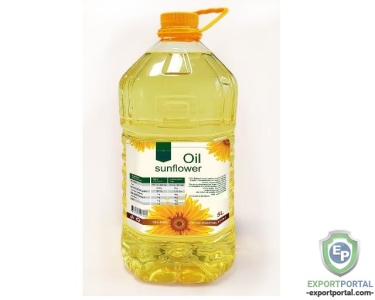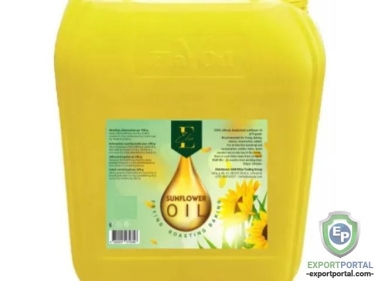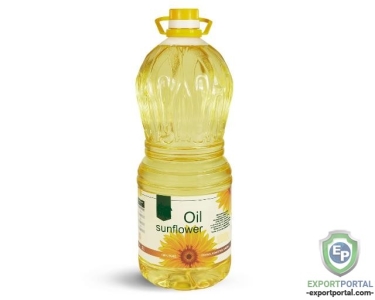Couldn't find the product you want?
Fill out this form to request the product.
Import to Lithuania
Lithuania is a country in Northern Europe. It's one of the three Baltic states, it is situated along the southeastern shore of the Baltic Sea, to the east of Sweden and Denmark. It is bordered by Latvia to the north, Belarus to the east and south, Poland to the south, and Kaliningrad Oblast to the southwest. Lithuania's capital and largest city is Vilnius and the estimated country's population is 3 million people.
Lithuania well-being depends heavily on trade, particularly with other republics of the former Soviet Union. In 2000, total Lithuania imports were valued at $5.5 billion, and exports at $3.8 billion. In the mid-to-late 1990s, Lithuania started to develop more active trading with Western nations, thus reducing its reliance on trade with former Soviet republics. Trade with the West increased from 15% to 60% between 1990 and 1995, while trade with former Soviet republics fell from 78% in 1990 to 40% in 1995. But we still see that the major importing partner of Lithuania is Russia and Asian countries.
Statistics say that 56% of imported goods in Lithuania in 2011 came from the EU countries - 37% from CIS countries. Russia dominates imports (33% of total 2011 import volume), then followed by Germany (10%), Poland (9%) and the neighboring Baltic country of Latvia (7%).
A significant part of Lithuania's imports is comprised of energy - that's why we see why the country's imports depend on Russia so much.
Lithuanian main imports are commodities, like mineral products, machinery and equipment, transport equipment, chemicals, textiles, clothing, metals, food products, vehicles and petroleum products.
Top 5 Products imported by Lithuania:
- Crude Petroleum (21%)
- Petroleum Gas (4.8%)
- Refined Petroleum (4.1%)
- Cars (3.6%)
- Packaged Medicaments (2.3%)
Export from Lithuania
Lithuania is a country situated on the eastern shore of the Baltic Sea and borders Latvia on the north, Belarus on the east and south, and Poland and the Kaliningrad region of Russia on the southwest. It is a land of gently rolling hills, many forests, rivers, streams and lakes. Its principal natural resource is agricultural land.
Lithuania is a member of the European Union and the biggest economy among the three Baltic states. GDP per capita reached $17,800 in 2008 and was higher than all of its neighbors - Latvia, Poland, Russia, and Belarus.
Lithuania export plays a significant role in Lithuania's trade and economy. Trade forms an important basis of the country's foreign relations. Lithuania has well-developed and bilateral trade relations with a number of countries, especially Western European nations and U.S.A. Other countries with which Lithuania trades the most include the other Baltic states, Denmark, Poland, France, Germany, Russia and Iceland.
Exports form a major aspect of the country's foreign trade. The major exports of Lithuania include food, live animals and manufactures. Agricultural products like fish, milk, butter, cheese etc are exported to other countries. About 80% of the agricultural exports of Lithuania go to Russia, it's main trading partner in import and export.
Lithuania's commercial exports consist mostly of mineral products (mineral fuels, mineral oils and products of their distillation; bituminous substances; mineral waxes), foodstuffs, machinery and mechanical appliances, electrical equipment and chemicals. Refined petroleum products make up Lithuania's most beneficial export commodity (18%), followed by fertilizers (5.1%) and furniture (3.5%). Other export commoditiesof Lithuania include wood (2.9%), transistors (3.3%), and automobiles (2.7%).
Lithuania's trading partners in export are Russia, Latvia, Germany and Poland, North America and South African Custom Union.
External trade of Lithuania in terms of exports by country is as follows: the largest recipients are the closest neighboring countries: 17% of Lithuania's exports of goods went to Russia, 10% to Latvia, 9% to Germany, while Estonia and Poland took 7% each.
Russia is a constant Lithuania's largest trading partner. This was in part determined by the sales of Lithuanian agricultural and food products. Lithuanian vegetables and dairy products, cheeses, in particularly, have an enormous demand in Russia and it is not decreasing.
Top 5 Products exported by Lithuania
- Refined Petroleum (23%)
- Furniture (3.6%)
- Nitrogenous Fertilizers (3.1%)
- Polyacetals (2.5%)
- Wheat (2.3%)
Seed oils are vegetable oils obtained from the seeds of plants, fruits and vegetables. The most famous seed oils are sunflower oil, canola oil, and sesame oil. With the diversity of oil types, to buy seed oils will be quite a choice. Almost all seed oils are used as both cooking oils and as SVO or to make biodiesel.
Used for different purposes, oils have been part of human culture for many centuries. Although many plant parts may yield oil, in commercial practice, oil is extracted primarily from seeds. The extracted oil can then be purified and, if required, refined or chemically altered. There is a big demand on seed oils nowadays, and the manufacturers all over the world sell or buy sunflower oil, sesame oil, or other seed oils to satisfy the need.
Corn oil is one of the most common cooking oils. It is used as salad dressing, in margarine, mayonnaise, prepared goods like spaghetti sauce and baking mixes, and as an oil to fry prepared foods like potato chips and French fries. Grape seed oil is used in cooking and cosmetics. Sesame oil is now widely used as a cooking oil, and as a massage oil as well.
Jojoba oil is found as component of many cosmetic products, especially those marketed as being made from natural ingredients. In particular, such products commonly containing jojoba are lotions and moisturizers, hair shampoos and creams with jojoba oils. Or, the pure oil itself may be used on skin, hair, or cuticles.
Argan oil is gaining a reputation both as an ingredient in high-end, personal-care products and as a heart-healthy gourmet product. In Morocco, argan oil is used to dip bread in at breakfast or to drizzle on couscous or pasta.
Coconut oil has various applications as food or in cosmetics. Cottonseed oil has traditionally been used in foods such as potato chips. Macadamia oil is sometimes used in food as a frying oil or salad oil, and in cosmetic formulations as an emollient or fragrance fixative.
Castor oil is used in the manufacturing of soaps, lubricants, hydraulic and brake fluids, paints, dyes, waxes and polishes, nylon, pharmaceuticals and perfumes.
Rapeseed is grown for the production of animal feed, vegetable oil for human consumption, and biodiesel; leading producers of rapeseed oil include the European Union, Canada, China, India, and Australia.
Almond oil is good for application to the skin as an emollient, and has been traditionally used by massage therapists to lubricate the skin during a massage session. Almond oil can also be used as a wood conditioner of certain woodwind instruments, such as the oboe and clarinet.
All seed oils are extremely popular and used worldwide. Export Portal is a great place to selling seed oils online, as well as byuing seed oils, and connecting sellers and buyers of this product.
Customs requirements of Lithuania
Lithuania Customs Contacts
Website: http://www.cust.lt/
Email: info@lrmuitine.lt
Telephone: (+ 370 5) 266 6111
Address: State budgetary institution/ A. Jakšto str. 1, 01105 Vilnius, Lithuania
Lithuania is one of the three Baltic states situated in Northern Europe, bordered by Latvia, Belarus, Poland and Kaliningrad Oblast (a Russian exclave). The country is a member of the European Union, the Council of Europe, the Schengen Agreement, NATO, Nordic Investment Bank and the Nordic-Baltic cooperation of Northern European countries.
Tariffs
All goods imported into Lithuania are subject to customs duties. The levied tax on imports depends on the country of origin and as a result there are three types of customs tariffs:
1. autonomous import duties – applied to countries with which Lithuania does not have international agreements and vary from 5 to 65%.
2. conventional import duties - applied to countries with which Lithuania has international agreements. These duties range from 0 to 57%.
3. preferential import duties - are applied to products coming from the countries with which Lithuania has Free Trade Agreements. These taxes vary from agreement to agreement.
Goods imported into Lithuania are also subject to a value-added tax of 18%, levied on the customs value of goods, plus import duty and excise tax.
There are also some additional taxes of 10% -75% applied on the following goods:
- ethyl alcohol and spirits (beer included)
- tobacco and tobacco substitutes
- coffee, chocolate and other food products containing cocoa
- jewelry, articles of gold and silver, except artificial jewelry and coins
- gasoline, kerosene, jet engine fuel, diesel fuel, fuel oil
- luxury cars
- all kinds of oil, except bio oils
- sugar, including sugar in the products
- liquid perfume and cosmetics
- liquefied gas for motor-vehicle transport
Product certification, packaging and labelling
Being a member of the European Union, Lithuania applies all the EU regulations regarding product certification. Thus importers will need sanitary, veterinary, hygiene and quality certificates for the imported goods, as well as import licenses for restricted products.
Labelling and packaging meets the EU requirements. The following details must be indicated on the label:
- product type (Trademarks, brand names or fanciful names may not substitute the generic/product name, but may be used in addition to the product name)
- all ingredients (including additives and ingredients capable to cause allergies)
- net quantity in metric units
- expiration date (not required for wine and beverages containing more than 10% alcohol)
- special conditions for keeping or use (if applicable)
- name and address of the manufacturer, packager or importer established in the European Union
- country of origin
- alcohol content for beverages containing more than 1.2% by volume
- lot identification with the marking preceded by the letter "L"
Documents for import:
- commercial invoice
- pro-forma invoice
- import licences or permits
- certificate of origin
- quality certificates
- transportation documents (waybill, CMR waybill, CARNET TIR book)
- documents related to the previously performed customs procedure (transit, customs warehousing, temporary storage of goods etc.)
- packaging inventory indicating the content of each package, if the same goods are presented in two or more packages
- documents certifying that import duties or taxes have been paid
Sources:
http://www.infolex.lt/portal/ml/start.asp?act=dobiz&lang=eng&file=importexporttrade.html
http://www.movers.com/international_movers/customs-regulations/lithuania.html


